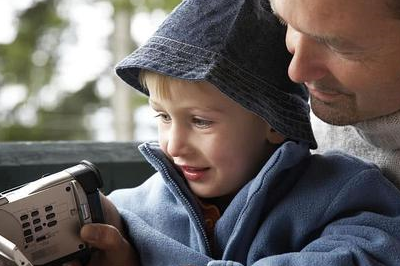Currently, many children in families are introverted. They can express themselves quite well in front of familiar people with laughter and chatter, but when they encounter strangers, they become like a stuck machine, hesitant to speak, feeling shy and evasive.
Sometimes, even when they see other children playing together, they dare not join in and instead remain standing on the sidelines, looking bewildered.
This can greatly worry their parents; when they see their child being uncommunicative and lacking in language interaction, what should they do?
Many introverted children have their own thoughts; they genuinely want to play with other children and want to respond to strangers’ questions. The reality is that they simply lack confidence and courage.
Introverted children tend to shy away from interacting with outsiders, struggle with emotional communication, know less about the world, and often do not greet their elders, which can lead parents to feel that their child is quite rude. Children also lack self-confidence and often run to their parents with many small questions, such as “Is this okay?” or “Can I do this?” This reflects a failure in proper guidance to instill confidence and courage in the child.
Many children actually begin a phase of self-growth around the age of three. At this stage, parents can try to let their child experience a time of self-growth and allow them to take on certain tasks independently.
This phase is crucial; if a child continues to receive excessive pampering from their parents during this time, it can foster a dependency on them, leading to indecisiveness in the child’s future choices.
For instance, teaching the child to appreciate and recognize others and to understand politeness is essential.
Encouraging children to explore things for themselves helps them learn what they should or shouldn’t do and how to approach various situations.
This approach can help children develop more self-confidence, enabling them to make their own decisions and have their own ideas.
Next is the courage of the child.
A child’s courage is something unique; when they are young, they are innocent and unreserved, taking on tasks without hesitation. If nurtured correctly, children’s courage can grow naturally around them, making it easier for them than for adults.
Conversely, children lacking courage differ significantly from those mentioned earlier. If parents do not correctly guide their children, excessive pampering can result in them being reluctant to let their children take on tasks, along with often missing fatherly companionship.
Fatherly presence can significantly empower a child’s courage. Boys, regardless of their age, often remain like children themselves; they explore mysteries with their kids and can become their friends.
For example, a father patiently plays with his child, builds blocks together, teaches them to play soccer, and engages in games. Fathers take their children to explore the world outside.
These seemingly insignificant moments can greatly enhance a child’s spirit and courage. The more they encounter different experiences, the more they see, making a father’s companionship the best gift for a child during their growth.
Children today are incredibly malleable. It’s vital to encourage them and patiently guide them, taking them to see the outside world. Filling their spirits with experiences will naturally lead to the arrival of courage and confidence, as long as parents provide positive and correct guidance, their children will grow up happy and healthy.


